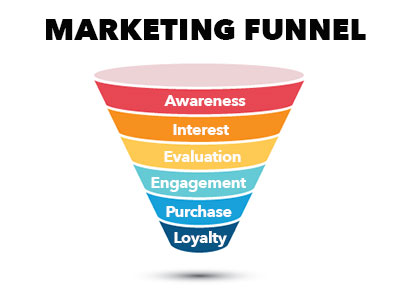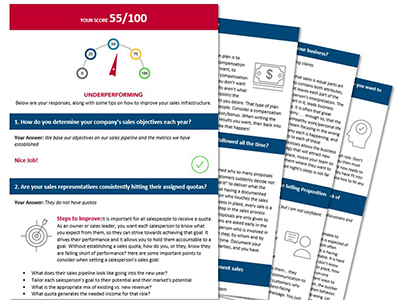In the sales world, lead generation should remain a consistent focus. Whether your company is facing good times or bad, a strong lead generation strategy and execution plan is key to maintaining a healthy sales pipeline which ensures you’ll meet your long-term revenue goals.
The integration of marketing and sales functions is essential in today’s digital business climate. Prospects have become more savvy buyers. This has resulted in the need for marketing and sales to partner so sellers are equipped with more targeted, intentional, and impacting content resources.
Custom, creative messaging is what captures
the attention of new qualified buyers in today’s
information rich environment.
If you’re feeling uncertain on how to navigate this new complexity, or are pressed for time to focus on it, I’m happy to help. Guiding small and mid-sized businesses on how to generate more volume for their sales pipeline is at heart of my Fractional VP Sales specialization.
Understanding the Buyer’s Journey
When looking to improve your lead generation approach, you should first consider the journey each new lead embarks on before becoming your customer. When laid out stage by stage, this journey is commonly illustrated as a Marketing Funnel.
Your salespeople play a key role in ushering new leads to a purchase decision and ultimately into the state of becoming a loyal, repeat customer.
Let’s add some context to these Marketing Funnel stages through the eyes of your buyer. It’s important for your sellers to recognize the various stages of the buyer’s journey so they understand how to tailor their approach as the lead transforms into a prospect, and eventually a customer.

- Awareness – contact is made with a new lead as they become topically aware of your company and product. This is the point that they enter the Marketing Funnel.
- Interest – light lead interaction begins as a result of your outreach; interest is cultivating and status quo loosening.
- Evaluation – the lead acts upon a CTA (call to action) within your messaging such as taking a survey, downloading a whitepaper, attending a webinar, etc. The lead has transitioned into a MQL (Marketing Qualified Lead).
- Engagement – buyer/seller dialog begins. The seller’s first objective is to determine if the MQL is also a SQL (Sales Qualified Lead), qualified to enter the sales process.
- Purchase – the prospect embraces a specific solution with readiness and authority to buy once they deem their decision justified.
- Loyalty – the customer realizes anticipated ROI on their purchase and becomes a brand advocate who shows interest in expanding use of your product or service.
A solid lead generation strategy will also serve as an attractor when recruiting top sales talent. In my previous article, Why Can’t I Find the Right Salespeople, I highlighted how top performers strive to stay in the roles that leverage their strengths, such as high value sales activity. Having lead generation tools ready for them to use is crucial in their ability to hit the ground running.
Defining Your Target Audience
In order to get the strongest ROI when investing in lead generation, you’ll want to be intentional by capturing the attention of key contacts within businesses that align with your Ideal Customer Profile (ICP).

The first step is defining your ICP. A good starting point is to analyze your current customer base by defining what stands out in your “best” customers. These may not be your highest revenue producers.
We typically find that our clients’ best customers have these baseline attributes…
- the most profitable have X in total sales and/or X number of employees
- utilize a wide scope of products/services
- come from select industries or vertical markets
- engage with suppliers as partners
- have strong company values alignment
- etc.
Designing Sales Messaging that Resonates
Now you know who you want to contact. But, do you know what to say in order to capture their attention? How can you attract them to your company versus all the other options out there?
This is where the strength of your value proposition and your effectiveness in converting it into compelling messaging is put to the test.
We live in a world where multiple pieces of bite-sized information come at us from all directions. To stand out from everyone else, you need to design unique messaging that aligns with the various stages of the Marketing Funnel.
Assume readers are viewing your content on a mobile device and committing just seconds to deciding if they will finish reading a sentence or two.
I facilitate a Value Proposition Workshop that has proven itself a productive exercise to strengthen and uniquely package a company’s key points of differentiation. I’ve found that most businesses greatly benefit by getting outside perspective to help them improve and expand their value proposition in order to uniquely separate themselves from their competition. It’s the old adage that one cannot see the forest for the trees when they are so close to it.

Developing Lead Generation Methods
After determining your target audience and designing your messaging, it’s time to develop the right channels to generate your desired level of lead flow.
Here are the various lead generation methods I assess to develop the right mix of lead flow for each unique environment. To enable us to move quickly when outside sources are justified, I maintain an arsenal of lead generation resources that are fully vetted, actively utilized, and proven to generate results.
ON-HAND, OWNED DATABASE
- Underutilized, Current/Active Customers
- Inactive Customers
- Closed Lost Opportunities
REFERENCES / REFERRALS
- Client References
- Strategic Partnerships
- Referral Relationships with shared ICP (Ideal Customer Profile)
OUTBOUND CAMPAIGNS
- Targeted Sales Outreach / Cold Calling
- Account Based Marketing
- Events / Associations / Trade Shows
- Email Drip Campaigns
INBOUND CAMPAIGNS
- Website Traffic Generation (Search Engine Optimization, Pay-Per-Click, etc.)
- Content Marketing
- Social Media Marketing
Key Takeaways
- Consistent, daily focus on lead generation is essential, even during the good times.
- Attract “the right” new business by defining your Ideal Customer Profile (ICP).
- Sellers will be more effective by understanding how to engage in the buyer’s journey.
- Design high impact sales messaging by being clear, concise, and differentiated.
- Utilize a mix of lead generation methods to create healthy, diversified lead flow.

I also invite you to follow me on LinkedIn to gain exposure to future article posts that will offer more valuable selling insights.
Another helpful resource I offer is a custom report you will receive after investing 2-minutes taking my Sales Agility Assessment. It’s filled with tips on how to optimize your sales environment based on your unique responses, making the report individualized and insightful!
I am part of a national group of Senior Sales Leaders who collaborate to share insights like the examples shown in this article. We formed because of our shared passion to help business leaders exponentially grow their revenue.

Pingback: How Do I Engage Sales in Lead Generation? – Strategic Sales Management
Comments are closed.